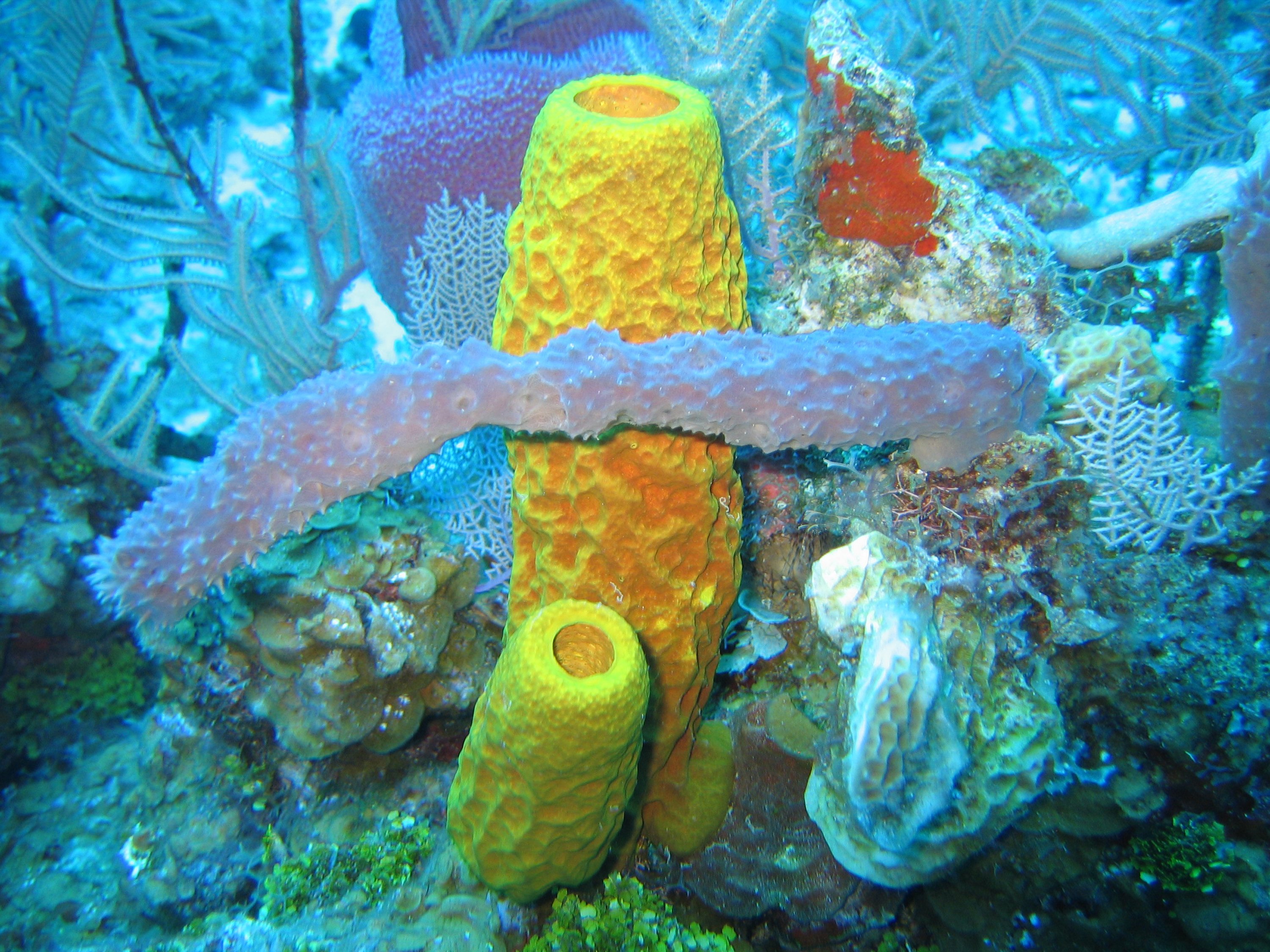|
Azoricidae
Azoricidae is a family of marine sponges belonging to the order of Tetractinellida Tetractinellida is an Order (biology), order of sea sponges belonging to the Class Demospongiae. First described in 1876, this order received a new description in 2012 and replaced the two orders Astrophorida and Spirophorida, which then became s .... Genera *'' Desmascula'' de Laubenfels, 1950 *'' Jereicopsis'' Lévi & Lévi, 1983 *'' Leiodermatium'' Schmidt, 1870 References Tetractinellida Taxa named by William Johnson Sollas {{demosponge-stub ... [...More Info...] [...Related Items...] OR: [Wikipedia] [Google] [Baidu] |
Tetractinellida
Tetractinellida is an order of sea sponges belonging to the Class Demospongiae. First described in 1876, this order received a new description in 2012 and replaced the two orders Astrophorida and Spirophorida, which then became sub-orders as Astrophorina and Spirophorina. Families ; Suborder Astrophorina Sollas, 1887 * Family Ancorinidae Schmidt, 1870 * Family Calthropellidae Lendenfeld, 1907 * Family Corallistidae Sollas, 1888 * Family Geodiidae Gray, 1867 * Family Isoraphiniidae Schrammen, 1924 * Family Macandrewiidae Schrammen, 1924 * Family Neopeltidae Sollas, 1888 * Family Pachastrellidae Carter, 1875 * Family Phymaraphiniidae Schrammen, 1924 * Family Phymatellidae Schrammen, 1910 * Family Pleromidae Sollas, 1888 * Family Theneidae Carter, 1883 * Family Theonellidae Lendenfeld, 1903 * Family Thrombidae Sollas, 1888 * Family Vulcanellidae Vulcanellidae is a family of sponges belonging to the order Tetractinellida Tetractinellida is an Order (biology), order of ... [...More Info...] [...Related Items...] OR: [Wikipedia] [Google] [Baidu] |
William Johnson Sollas
Prof William Johnson Sollas PGS FRS FRSE LLD (30 May 1849 – 20 October 1936) was a British geologist and anthropologist. After studying at the City of London School, the Royal College of Chemistry and the Royal School of Mines he matriculated to St. John's College, Cambridge, where he was awarded First Class Honours in geology. After some time spent as a University Extension lecturer he became lecturer in Geology and Zoology at University College, Bristol in 1879, where he stayed until he was offered the post of Professor of Geology at Trinity College Dublin. In 1897 he was offered the post of Professor of Geology at the University of Oxford, which he accepted. Considered "one of the last true geological polymaths", Sollas worked in a number of areas including the study of sponges, brachiopods and petrological research, and during his lifetime published 180 papers and wrote three books. He also invented the serial sectioning device for the study of fossils.A method for the in ... [...More Info...] [...Related Items...] OR: [Wikipedia] [Google] [Baidu] |
Family (biology)
Family ( la, familia, plural ') is one of the eight major hierarchical taxonomic ranks in Linnaean taxonomy. It is classified between order and genus. A family may be divided into subfamilies, which are intermediate ranks between the ranks of family and genus. The official family names are Latin in origin; however, popular names are often used: for example, walnut trees and hickory trees belong to the family Juglandaceae, but that family is commonly referred to as the "walnut family". What belongs to a family—or if a described family should be recognized at all—are proposed and determined by practicing taxonomists. There are no hard rules for describing or recognizing a family, but in plants, they can be characterized on the basis of both vegetative and reproductive features of plant species. Taxonomists often take different positions about descriptions, and there may be no broad consensus across the scientific community for some time. The publishing of new data and opini ... [...More Info...] [...Related Items...] OR: [Wikipedia] [Google] [Baidu] |
Marine (ocean)
The ocean (also the sea or the world ocean) is the body of salt water that covers approximately 70.8% of the surface of Earth and contains 97% of Earth's water. An ocean can also refer to any of the large bodies of water into which the world ocean is conventionally divided."Ocean." ''Merriam-Webster.com Dictionary'', Merriam-Webster, |
Sponge
Sponges, the members of the phylum Porifera (; meaning 'pore bearer'), are a basal animal clade as a sister of the diploblasts. They are multicellular organisms that have bodies full of pores and channels allowing water to circulate through them, consisting of jelly-like mesohyl sandwiched between two thin layers of cells. Sponges have unspecialized cells that can transform into other types and that often migrate between the main cell layers and the mesohyl in the process. Sponges do not have nervous, digestive or circulatory systems. Instead, most rely on maintaining a constant water flow through their bodies to obtain food and oxygen and to remove wastes. Sponges were first to branch off the evolutionary tree from the last common ancestor of all animals, making them the sister group of all other animals. Etymology The term ''sponge'' derives from the Ancient Greek word ( 'sponge'). Overview Sponges are similar to other animals in that they are multicellular, he ... [...More Info...] [...Related Items...] OR: [Wikipedia] [Google] [Baidu] |
